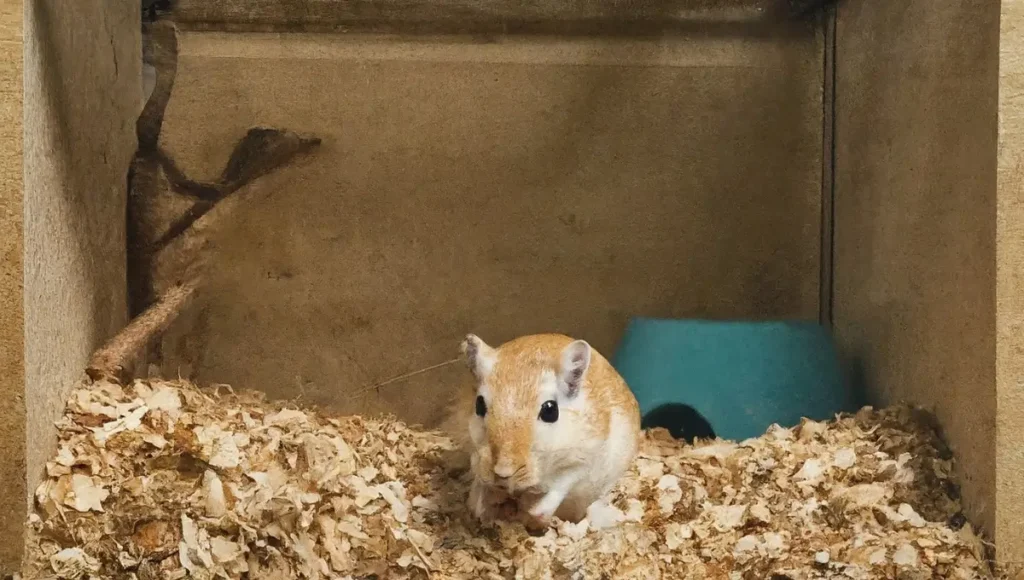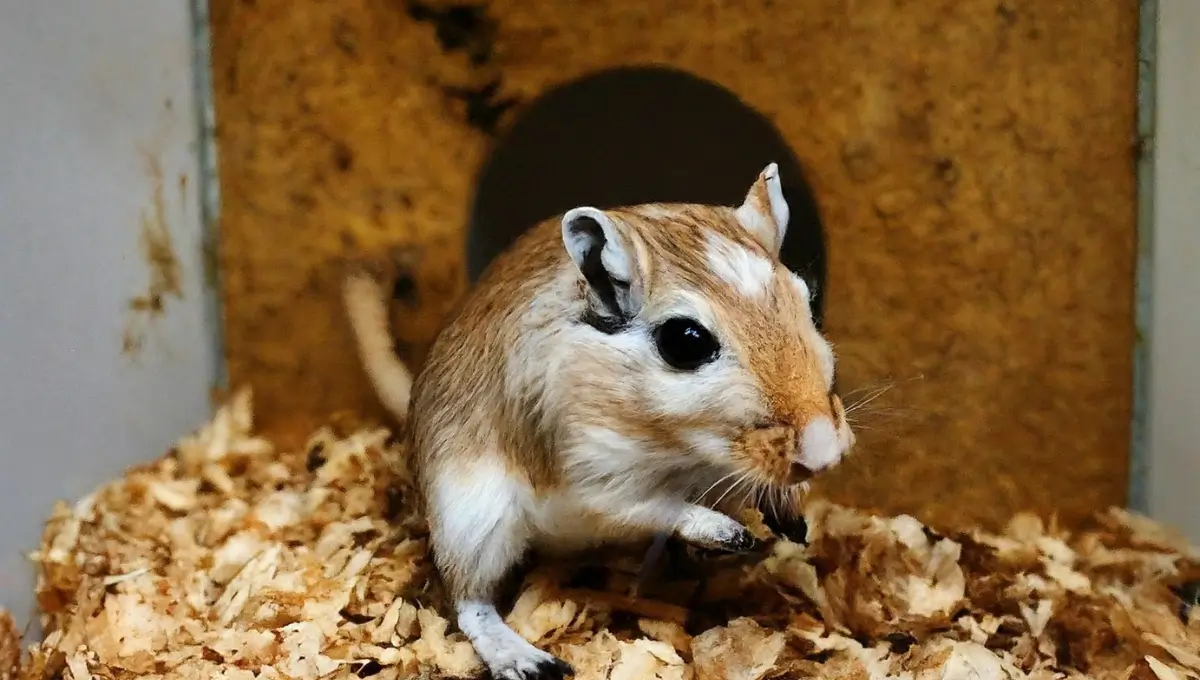Gerbils are charming, inquisitive pets that bring joy to many households. However, like all pets, they come with their own set of care requirements, one of which is managing the smell that can emanate from their living environment. If you’ve noticed a less-than-pleasant aroma coming from your gerbil’s cage, don’t worry.
This guide will walk you through understanding the sources of gerbil odor and provide actionable steps to keep your home smelling fresh while ensuring your furry friends are happy and healthy.
Understanding Gerbil Odor
Before diving into solutions, it’s crucial to understand what causes gerbil cages to smell in the first place. Gerbil odor can primarily be attributed to three sources: urine, feces, and scent marking.
While gerbils are generally clean animals, their waste can accumulate quickly in a confined space like a cage, leading to unpleasant smells. Additionally, gerbils have scent glands they use to mark their territory, which can also contribute to the overall odor.
Several factors can exacerbate cage smell, including lack of ventilation, overcrowding, and infrequent cleaning. A well-ventilated cage allows air to circulate and dissipate odors, while overcrowding can lead to more waste and stronger smells. Regular cleaning is essential to manage odors effectively, but more on that later.
How to Get Rid of Gerbil Smell?
The first step in combating gerbil odor is to take preventative measures that will help minimize smell from the start.
Choosing the Right Cage
The type of cage you select can have a significant impact on odor control. Opt for a gerbil cage that is spacious enough for your gerbils to live comfortably and has good ventilation. Wire cages often provide better air circulation than glass aquariums, but if you prefer the latter, ensure it has a mesh top to allow air in and out.
Selecting Appropriate Bedding
Bedding plays a crucial role in odor control. Look for bedding materials that are highly absorbent and designed to neutralize odors. Paper-based bedding is a popular choice among gerbil owners for its absorbency and lack of dust.
Avoid cedar and pine shavings, as they can be harmful to your gerbils’ respiratory systems. Change the bedding regularly, at least once a week, to keep odors at bay.
Diet and Hydration
What your gerbils eat can also affect how their cage smells. A balanced diet that includes a mix of gerbil pellets, fresh fruits, and vegetables can help minimize strong odors. Avoid overfeeding and remove uneaten fresh food promptly to prevent it from spoiling in the cage. Fresh, clean water should always be available to help with digestion and overall health.
By understanding the sources of gerbil odor and implementing these preventative measures, you can create a pleasant living environment for your gerbils and maintain a fresh-smelling home.
Also read: What Are The Least Smelly Rodent Pets?
Regular Maintenance and Cleaning Of Gerbil Cage

Maintaining a clean habitat for your gerbils is not just about odor control; it’s about ensuring the health and happiness of your furry friends. Regular maintenance and a consistent cleaning schedule can significantly reduce unpleasant smells and create a welcoming environment for both you and your pets.
Daily Cleaning Tasks
Incorporate simple cleaning tasks into your daily routine to manage odors effectively. Start with spot cleaning, which involves removing soiled bedding, uneaten food, and droppings every day. This practice helps prevent the buildup of waste, which can quickly lead to a smelly cage. Additionally, check the corners of the cage, as gerbils often choose these areas for urination.
Weekly Cleaning Routine
While daily spot cleaning is crucial, a more thorough clean is necessary on a weekly basis. This involves removing all bedding and washing the cage with a pet-safe disinfectant. Ensure the cage is completely dry before adding fresh bedding. This is also an excellent time to wash water bottles, food dishes, and toys, which can harbor bacteria and contribute to odors.
Managing Scent Glands
Gerbils use their scent glands to mark territory, which can add to the overall smell of the cage. While it’s a natural behavior, minimizing excessive scent marking involves keeping your gerbils happy and stress-free. Providing a spacious cage, regular handling, and environmental enrichment can reduce the need for your gerbils to mark excessively.
Additional Tips and Tricks
Beyond regular cleaning, there are additional strategies you can employ to keep your gerbil’s cage smelling fresh.
Natural Odor Absorbers
Consider using natural odor absorbers inside or near the cage. Baking soda, for example, can be placed in a small container within the cage area (but out of reach of your gerbils) to help neutralize odors. Charcoal filters are also effective at absorbing smells and can be placed near the cage.
Proper Ventilation
The location of your gerbil’s cage can impact how well odors are managed. Ensure the cage is in a well-ventilated area, away from damp or humid parts of your home. Using an air purifier in the room can also help filter out pet odors, keeping the air fresh for both you and your pets.
Also read: Where Should I Put My Gerbil Cage?
FAQs
Why does my gerbil’s cage smell so bad?
A strong odor often indicates infrequent or inadequate cleaning, or the use of non-absorbent bedding. Regular spot cleaning, weekly deep cleans, and choosing the right bedding are essential steps to prevent bad smells.
How often should I clean my gerbil’s cage to prevent smells?
Daily spot cleaning combined with a thorough weekly clean, including washing the cage and changing the bedding, is crucial for controlling odors and ensuring a healthy environment for your gerbils.
Can diet affect how my gerbil smells?
Yes, a gerbil’s diet can impact the smell of their cage. High-quality, balanced diets lead to healthier digestion and less potent waste. Avoiding overly processed treats and ensuring fresh water can also help minimize odors.
Are there any products that can help control gerbil odor?
Several products can help manage odors, including odor-absorbing bedding materials, natural odor eliminators like baking soda and charcoal filters, and air purifiers placed near the cage to help keep the surrounding air fresh.
Conclusion
In conclusion, managing and preventing gerbil odors is a straightforward process that requires regular maintenance, a bit of knowledge, and the right products. By understanding the sources of odors, implementing a consistent cleaning routine, and utilizing odor-control strategies, you can create a pleasant living environment for your gerbils and a fresh, welcoming space in your home.
Remember, a clean cage is not just about odor control; it’s about providing a healthy and stimulating environment for your furry friends to thrive in.











